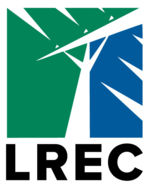SCAM ALERT! LREC members have reported receiving telephone calls from numbers attempting to collect on delinquent power bills. The caller states that the bill is due now, and unless paid immediately, the member's electricity will be disconnected.
If you receive a call from any number demanding payment or your power will be disconnected, hang up and consider reporting the incident to local authorities. The following numbers will be used if LREC is contacting members:
- (218) 863-1171 | LREC's local number
- (855) 939-3571 | LREC's SmartHub number
- (218) 853-5732 | LREC's texting number
Members are encouraged to add these phone numbers to their contact list to ensure they are speaking with an LREC representative. If you have any questions, please contact our office.
HOW TO TELL IF YOU’RE BEING SCAMMED
- It’s probably a scam if the caller demands immediate payment and threatens immediate disconnection. If you’re asked to wire money, use a money order, a gift card, go through PayPal, or make a payment that is outside our regular payment process, chances are good you’re being scammed.
- Lake Region Electric Cooperative has a process that takes place over a period of time before disconnecting any service. There is no “immediate” disconnection. We send letters, leave door hangers, and discuss payment arrangements with members. In addition, we do not disconnect at night or on weekends.
- The scammers have gotten more sophisticated over the years. Now, their caller ID appears to originate from the utility. If you’re unsure about any call you receive that is supposedly from us, hang up and call our customer service phone number (800) 552-7658, which is also on your bill.
- Don’t be rushed. If a caller tries to keep you on the phone to prevent you from verifying the call, or says you must pay immediately to prevent your power from being disconnected, the call is not legitimate. Tell the caller you would like to verify the call, hang up and then call our number. That way you’ll know that you’re dealing with Lake Region Electric Cooperative.
- It is a good rule of thumb to avoid providing any information—including credit card numbers, checking account information, or other personal information—over the phone to people who call you. Most utility companies will allow you to mail payment directly to the company, or pay via a secured website.
- If the call turns out to be a scam, please report it immediately to local police or the Sheriff’s Department.
 Lake Region Electric Cooperative
Lake Region Electric Cooperative